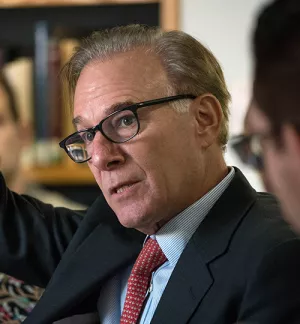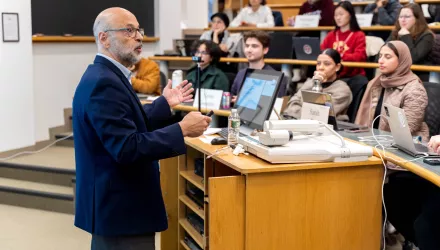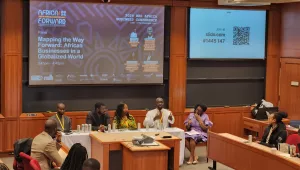The Obama administration is placing a large bet on the ability of a Syrian former professor of military engineering to build a coherent rebel army that can defeat the regime of Bashar al-Assad, combat Islamic radicals and help build a stable new Syria.
Gen. Salim Idriss, the commander of the rebels’ Supreme Military Council, is the centerpiece of the administration’s new strategy. He repeated in an interview Tuesday the sensible, moderate positions that have made him so attractive to the administration. He’s a solid ally, but a caution is needed: The United States is turning to Idriss late in the game and asking him to create a tight command-and-control structure from a ragged, factionalized force — which may be mission impossible.
Idriss, a German-trained engineer who defected from Assad’s army last summer, voices moderate, nonsectarian views. He opposes the extremist al-Nusra Front and told me that he has ordered his fighters to stop cooperating with them. He repeated a February statement that he’s ready to negotiate a political transition with Syrian army commanders who haven’t ordered the deaths of civilians.
Idriss also offered to meet “right now” with Russian officials. “If they have some interests, we will discuss the Russian role in the future. We will be very positive,” he said.
This willingness to work with Russia and “reconcilable” Syrian generals is one reason the administration likes Idriss. President Obama continues to believe that a political settlement, brokered with Moscow’s help, is preferable to a rebel military victory, and he discussed Syria on Monday with Russian President Vladimir Putin.
Idriss is emphatic about his break from the al-Nusra Front, which is an offshoot of al-Qaeda in Iraq. “We don’t work with al-Nusra. We don’t share anything with them.” He said fighters from the extremist group had fought alongside some of his battalions, “but they were not invited.”
A U.S. official agreed Tuesday that there was “a growing reluctance” among Idriss’s mainstream umbrella group to work with al-Nusra, especially after the jihadist front formally pledged allegiance to al-Qaeda in Iraq a few weeks ago. “Al-Nusra’s gains haven’t been arrested, but their progress has been decelerated,” said the U.S. official.
“Idriss says and does the right things,” a second U.S. official told me. “We believe he is genuine. Are there concerns? Yes, but what are the options?”
The United States is already sending non-lethal equipment to Idriss and helping train his forces in Jordan. A big U.S. shipment of humanitarian assistance arrived Tuesday from Turkey at a warehouse in a liberated area in northern Syria, handsomely packaged in a wrapper bearing the crest of the Supreme Military Council.
More aid is on the way. Already promised are armor, night-vision goggles and other war-fighting gear. The administration is discussing sending weapons and ammunition, too, though an official cautioned Wednesday that even if Obama decides to send the weapons, he probably won’t include the shoulder-fired anti-aircraft missiles the rebels desperately want. On that, says one U.S. official, “there’s apprehension” and “anxiety” — not least that one of the missiles might someday be aimed at Israel’s Ben Gurion Airport.
Idriss’s biggest challenge will be to gain control over the Islamist fighters who have formed the backbone of the Free Syrian Army for nearly two years. The Syrian opposition is almost entirely Sunni Muslim, and the Islamists (especially al-Nusra’s recruits) have been among the best fighters. It will take more than an official edict from Idriss to accomplish a separation.
Squeezing the extremists will be impossible without more help from Turkey, across whose border the Syrian jihadist fighters travel daily to receive money and supplies from wealthy Gulf Arabs. The United States is hoping that Turkey will crack down harder on this cross-border traffic; this will be a key topic when Turkish Prime Minister Recep Tayyip Erdogan visits Washington this month.
To underline the need for U.S. help, especially against Syrian chemical weapons, Idriss sent a letter Tuesday night to Obama. “Mr. President, I understand the reasons behind your cautious involvement in Syria,” it said. “We desperately need your support, as the Free Syrian Army under my command has neither the requisite training nor equipment to counter the effects of Assad’s chemical weapons or to destroy them.”
The letter pledged that “our future Free Syria will not need weapons of mass destruction.” In other words, to get rid of “senseless” chemical weapons, dump Assad.
The rebel general seems to have won over Obama. But nobody should forget that this sort of paramilitary covert action program, while it appears the best among bad options, almost never has a happy ending.
Ignatius, David. “Obama Bets Big on Syrian Rebel Leader.” The Washington Post, May 1, 2013





